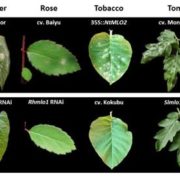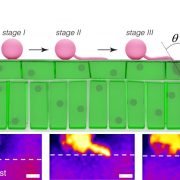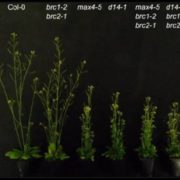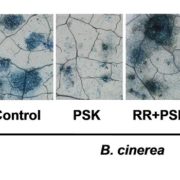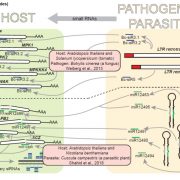Plant neighbor detection and allelochemical response are driven by root-secreted signaling chemicals (Nature Communications)
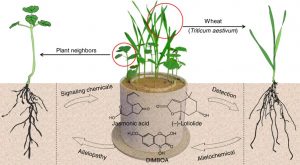 Plants are not able to move out of their neighborhood if they are unhappy, but they are capable of recruiting and assembling a community in which they are able to thrive. Plants are also able to initiate defense when they sense that threats are near. To keep tabs on their neighbors, plants utilize both physical and chemical signals. Based on these signals, plants are able to respond. In this research, the authors were interested in understanding more about soil-borne chemicals involved in belowground signaling. They provide evidence that wheat can respond to at least 100 other plant species via belowground interactions and show that when wheat plants detect (-)-loliolide and jasmonic acid, secreted from the roots of a diverse range of species, they respond with chemical defenses.
Plants are not able to move out of their neighborhood if they are unhappy, but they are capable of recruiting and assembling a community in which they are able to thrive. Plants are also able to initiate defense when they sense that threats are near. To keep tabs on their neighbors, plants utilize both physical and chemical signals. Based on these signals, plants are able to respond. In this research, the authors were interested in understanding more about soil-borne chemicals involved in belowground signaling. They provide evidence that wheat can respond to at least 100 other plant species via belowground interactions and show that when wheat plants detect (-)-loliolide and jasmonic acid, secreted from the roots of a diverse range of species, they respond with chemical defenses.
Our Facebook post highlighting this publication reached 8658 people and had over 753 engagements, in September 2018. This paper was especially popular on Twitter with 76 retweets and 119 likes (Summary by Katie Rogers, https://doi.org/10.1038/s41467-018-06429-1 )


